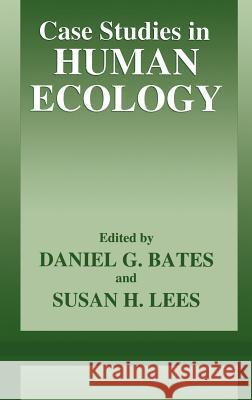Case Studies in Human Ecology » książka
Case Studies in Human Ecology
ISBN-13: 9780306452451 / Angielski / Twarda / 1996 / 408 str.
This volume was developed to meet a much noted need for accessible case study material for courses in human ecology, cultural ecology, cultural geography, and other subjects increasingly offered to fulfill renewed student and faculty interest in environmental issues. The case studies, all taken from the journal Human Ecology: An Interdisciplinary Jouma represent a broad cross-section of contemporary research. It is tempting but inaccurate to sug gest that these represent the "Best of Human Ecology." They were selected from among many outstanding possibilities because they worked well with the organization of the book which, in turn, reflects the way in which courses in human ecology are often organized. This book provides a useful sample of case studies in the application of the perspective of human ecology to a wide variety of problems in dif ferent regions of the world. University courses in human ecology typically begin with basic concepts pertaining to energy flow, feeding relations, ma terial cycles, population dynamics, and ecosystem properties, and then take up illustrative case studies of human-environmental interactions. These are usually discussed either along the lines of distinctive strategies of food pro curement (such as foraging or pastoralism) or as adaptations to specific habitat types or biomes (such as the circumpolar regions or arid lands)."











